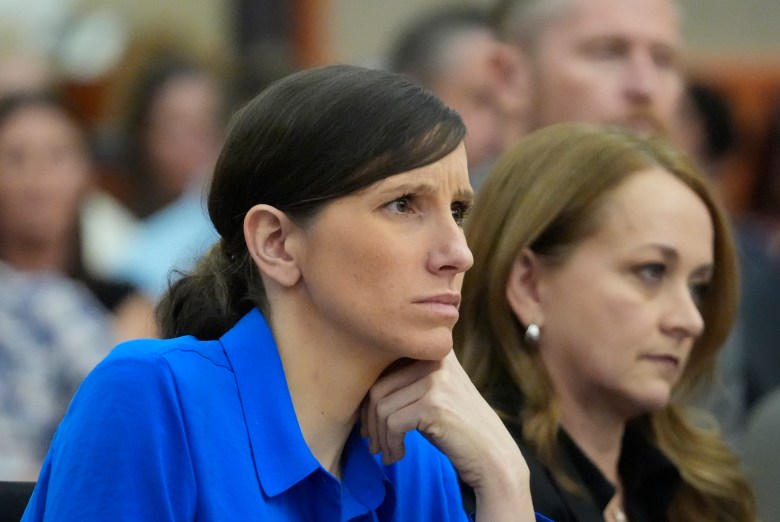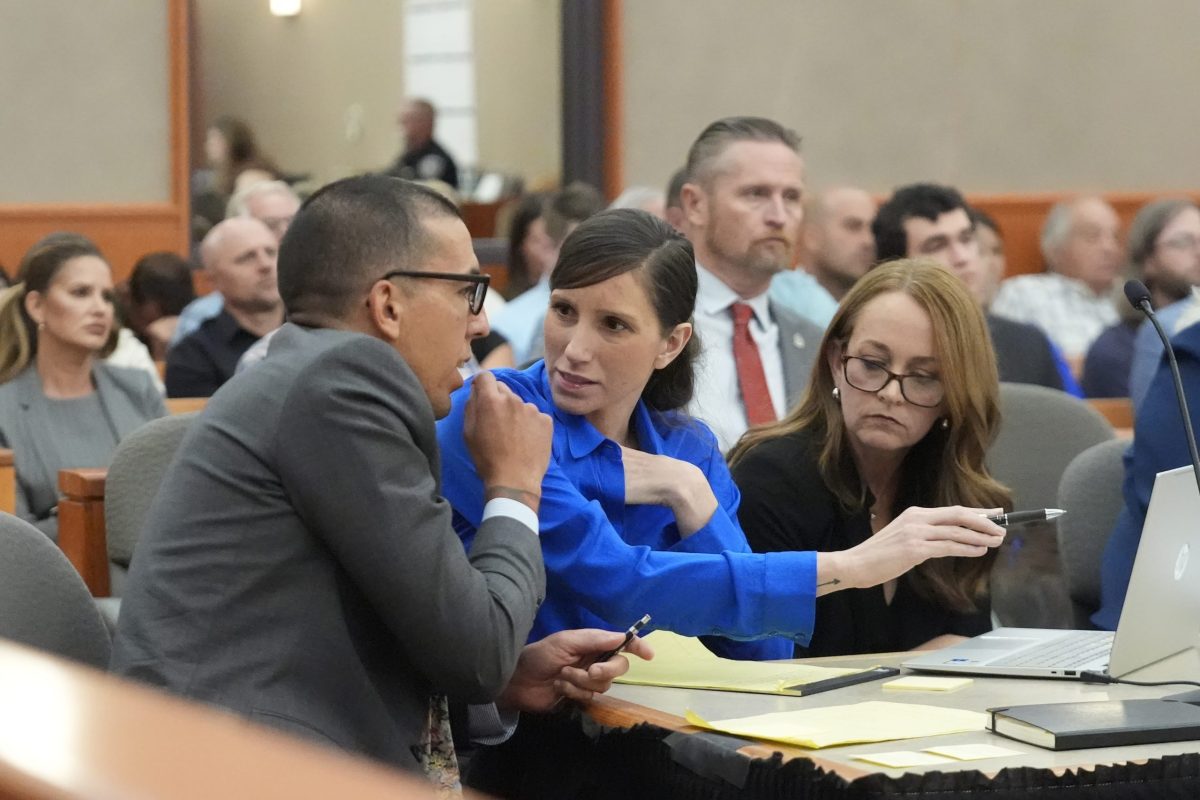Kouri Richins, the Kamas mother of three charged with administering a lethal dose of fentanyl to her husband, is scheduled to go to trial for his alleged murder in May 2025.
Third District Court Judge Richard Mrazik on Tuesday afternoon ruled the Summit County Attorney’s Office had presented enough evidence in the two-day preliminary hearing to determine probable cause exists, allowing the trial to proceed next year.
The judge’s ruling was based on information provided in the court docket, witness statements and expert testimony presented on Monday, during the first day of the hearing. Mrazik acknowledged there is a relatively low threshold to prove probable cause and bind someone for trial.
“These facts taken together would support the issuance of a search warrant to investigate whether Ms. Richins attempted to cause the death of her husband. They would support the issuance of an arrest warrant,” Mrazik explained.
Kouri pleaded not guilty to all 11 felonies she’s been charged with, including aggravated murder, attempted criminal homicide, distribution of a controlled substance, mortgage and insurance fraud as well as forgery.
“We are aware that the preliminary hearing stage favors the prosecution to an extraordinary degree and respect the court’s decision. We firmly believe the charges against Kouri do not withstand thorough scrutiny and are confident that a jury will find the same,” Nester Lewis said in a statement.
Much of the discussion on Tuesday was centered around clarifying the charges and showing how the evidence supported each alleged crime.
Chief Prosecutor Brad Bloodworth described how the charges were linked, emphasizing that the case must be viewed from a wide angle domestic violence lens. He said evidence of the attempted homicide on Valentine’s Day in 2022 comes from Eric’s death 17 days later, as well as Kouri’s behavior before and after the event.
Bloodworth said prosecutors have proven Kouri procured fentanyl in early February and asked her source, who was a housekeeper she employed, for something stronger after the alleged poisoning didn’t work.
Prosecutors claim Kouri purchased fentanyl days before she picked up a sandwich they say she laced with the drug and fed to her husband. Later that morning, Kouri texted her paramour a screenshot of a navigation app indicating she was on her way to him.
While Kouri was away, Eric experienced a medical event. He texted his wife saying he didn’t feel well and considered going to a hospital. He then took a two-hour nap. Prosecutors have a statement from a toxicologist affirming Eric’s symptoms were consistent with consuming fentanyl.
Kouri later lamented to her paramour that she wished Eric would “just go away.” Two weeks after Valentine’s Day, she told him life would be different. Eric died a few days later.
“She learned that was not the proper way to administer a fatal dose,” Bloodworth said of the Feb. 14 incident, connecting the attempt and homicide through motive and the takeaway.
Wendy Lewis and Kathryn Nester, defense attorneys representing Kouri, offered a different argument. They asked Mrazik to drop the attempted murder charge.
Nester said there is no evidence to support the charge based on the timeline of the day. She argued the couple ate breakfast together that morning, rather than separately, because the sandwich in question contained eggs.
Eric didn’t text Kouri that he was feeling sick until two hours after she left their home, which Nester said doesn’t support fentanyl poisoning. However, it was unclear whether Eric disclosed to Kouri that he hadn’t been feeling well before she left.
The defense attorney noted Eric completed several tasks and errands throughout the day before and after he napped. She said there was no indication from Eric that he felt his life was in danger after eating the sandwich, and that there is an “innocent explanation” for everything that happened on Valentine’s Day.
Lewis added there’s no way to know for sure whether the housekeeper actually sold Kouri fentanyl because the pills were never found or tested.
Mrazik countered that the housekeeper, who is a drug court participant, likely knew the difference.
Kouri’s defense explained her texts about wanting Eric gone were a possible reference to divorce — not murder.
“This was not a perfect couple. They did not have a perfect relationship,” Nester said.
Mrazik was not convinced. He noted other texts between Kouri and her best friend in which Kouri lied about her location and what she had been doing that day, potentially indicating consciousness of guilt.
The judge also sought additional information about the financial charges against Kouri.
Bloodworth described Kouri’s alleged scheme to profit off of Eric’s death. She submitted an application to take out a $100,000 life insurance policy on her husband in January 2022 that would take effect 10 days before the alleged attempted homicide. The filing listed Kouri’s business address and email as well as the wrong phone number for Eric, making it impossible to contact him.
The chief prosecutor affirmed there was sufficient evidence for probable cause, and Mrazik ultimately agreed. He said all claims were supported and emphasized that Kouri is presumed innocent.

“Our focus now is on ensuring that justice is served through a fair trial. We are committed to defending Kouri against these charges, firmly believing that the truth will prevail. These past 15 months have taken a heavy toll on Kouri and her three children. It’s time to bring this ordeal to an end, restore her life, and allow her and her family to move on,” Kouri’s defense team said.
Nester and Lewis anticipated a trial would last four weeks. One week of jury selection was scheduled in late April, with the trial to be held in May. Mrazik scheduled a pretrial conference on Sept. 23 to discuss additional details of the case, including submission deadlines and jury selection.
The process is expected to be challenging because of the media attention the case has acquired. Nester indicated the defense would file extraordinary circumstances for jury selection as the Third District Court relies on a virtual selection process.
Mrazik encouraged both sides to start planning now.

